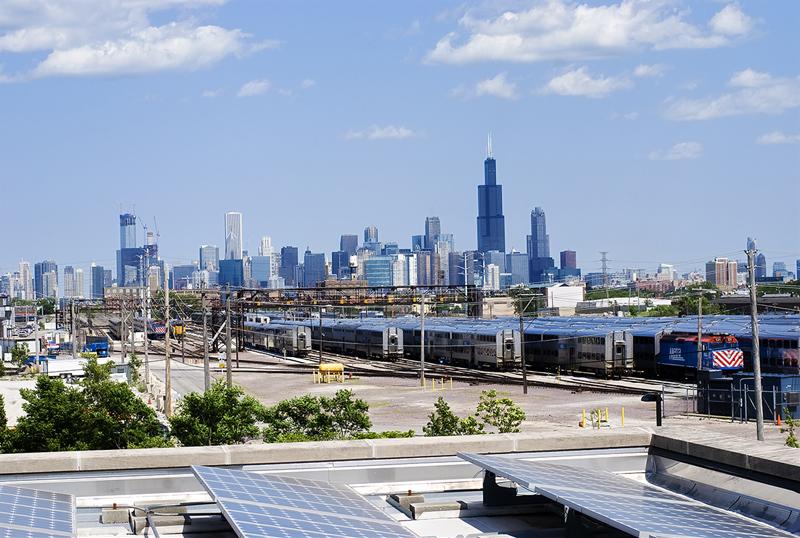 Image: Pixabay
Image: Pixabay
Looking anew at urban planning
As temperatures rise and global warming is a hot topic, literally, cities need to implement adaptive strategies that are responsive to local circumstances to mitigate the climate crisis, writes Steve Fox
Although cities occupy just two percent of the world’s landmass, they consume more than two-thirds of the world’s energy and are responsible for more than 70 percent of global carbon dioxide emissions, according to the C40 Cities Climate Leadership Group, a New York-headquartered coalition of 97 global megacities (including five Indian cities), that supports sustainable action on climate change.
As temperatures rise due to climate change, dense metropolitan areas are likely to be affected in a more pronounced manner than other areas. Additionally, with many of the world’s largest cities located on coastlines, urban areas face huge risks from rising sea levels and devastating coastal storms, which are both effects of climate change. “Cities are not only the main cause of climate change but also the most affected,” says Rohit Vijay Tak, a Fulbright-Nehru Master’s Fellow in urban design at the University of California, Berkeley and manager in the Sustainable Cities: Urban Transport and Road Safety program at the World Resources Institute India.
“While newly planned cities can be developed considering climate change, it’s the inhabited cities where the challenges are more complex,” says Tak. “More than half of the world’s population lives in such urban areas, which are responsible for about 75 percent of global carbon dioxide emissions. To mitigate this challenge, cities need to limit their greenhouse gas emissions by reducing the demand for energy, developing greener energy alternatives and supporting more sustainable lifestyles.”
.jpg)
Policies that target specific industries have proven quite effective, says Shalini Sharma, a postdoctoral Fulbright-Nehru Environment Leadership Fellow at Columbia University who is now chief executive officer at the Sanshodhan E-Waste Exchange in Hyderabad.
“In India, the government has mandated that the construction sector use a minimum of 30 percent renewable energy,” she says. “This has been a great strategy, as it can reduce 30 percent of greenhouse gas emissions from this sector.”
Tak notes that cities must also respond to the reality that climate change is already happening. “To prepare cities to better respond to the current or expected climate change, it is important to implement adaptive strategies that are location-specific and responsive to local circumstances,” he says. “Adaptive strategies help prepare cities to adjust to the effects of climate change, thus limiting their magnitude and severity.”
.jpg)
There are many adaptive strategies cities can take to combat climate change, says Sharma. “Cities can use renewable energy, retrofit buildings, use compressed natural gas and biofuels, increase the use of public transport, reduce emissions from the waste sector, establish online services for citizens throughout the city, plan urban forestry, oxygen parks and cool roofs, cap emissions from industries, and focus on minimizing emissions from supply chains, among other things,” she explains.
There’s no time to waste—70 percent of the cities in the C40 network report that they are already feeling the effects of climate change. Many experts believe that emissions must fall dramatically to limit global warming to well below 2 degrees Celsius, a goal set forth in the 2016 Paris Agreement, which included commitments by more than 190 nations to combat climate change and adapt to its impacts.
Although climate change is a worldwide phenomenon, Tak and other experts agree that opportunities to address global warming may be greatest at the level of city government. Local governments often have closer relationships with their businesses, residents and institutions, allowing new policies to be implemented more rapidly and decisively.
.jpg)
“A bottom-up approach needs to be followed,” says Tak. “Since greenhouse emissions are concentrated in certain cities, treating them as hotspots and implementing mitigation policies can have a large effect in demonstrating, monitoring and evaluating change that can help guide governments at regional and national levels in effectively scaling up their efforts.”
Tak and Sharma agree that recent extreme weather events have accelerated recognition of climate change and the need to adopt new approaches to managing emissions.
“As opposed to immediate dangers, climate change is often a large-scale and slow process,” says Tak. “However, the frequency of extreme weather events like flooding, landslides and extreme heat and their disastrous effects have increased awareness and pushed scientists and governments from the developed as well as the developing world to declare a climate emergency and increase awareness about climate change.”
While the challenges of global warming may seem daunting, Tak notes that both the source of the problem and its solution reside in the same place, offering reason for optimism. “Climate change is mostly a result of human-caused greenhouse gas emissions,” he says, “and thus could be mitigated by influencing human behaviour.”
Top Headlines
-
Lifestyle
ACM India unveils National AI Olympiad 2026 to spot school talent for global AI stage
December 21, 2025
-
Lifestyle
'Dont join politics': Why Tharoor defied his mother and endorsed his conviction
December 15, 2025
-
Lifestyle
Birbhum: Sitaramdas Omkarnath Chair at Biswa Bangla Biswavidyalay
December 04, 2025
-
Lifestyle
Rediscovering Arunachal's Monpa Cuisine: One Womans Millet Momo Revolution
November 24, 2025
-
Lifestyle
Shiny things by Jinia: A luxury evolution by visionary entrepreneur, healer
November 19, 2025
-
Lifestyle
Mystique and Memories: Wiccan Brigade hosts its first Halloween Fest in Kolkata
November 17, 2025
-
Lifestyle
Rotary Club of Calcutta Samaritans hosts three-day youth leadership awards program for tribal students in Bakura
November 15, 2025
-
Lifestyle
Rotary Club, South Kolkata Vision inaugurate newly developed children's park in Sonarpur
November 15, 2025
-
Lifestyle
Bengali couple promoting Indian music and culture among young Americans
October 28, 2025
-
Lifestyle
Durga Puja sustainability: One of the oldest awards goes flex-free
October 17, 2025
